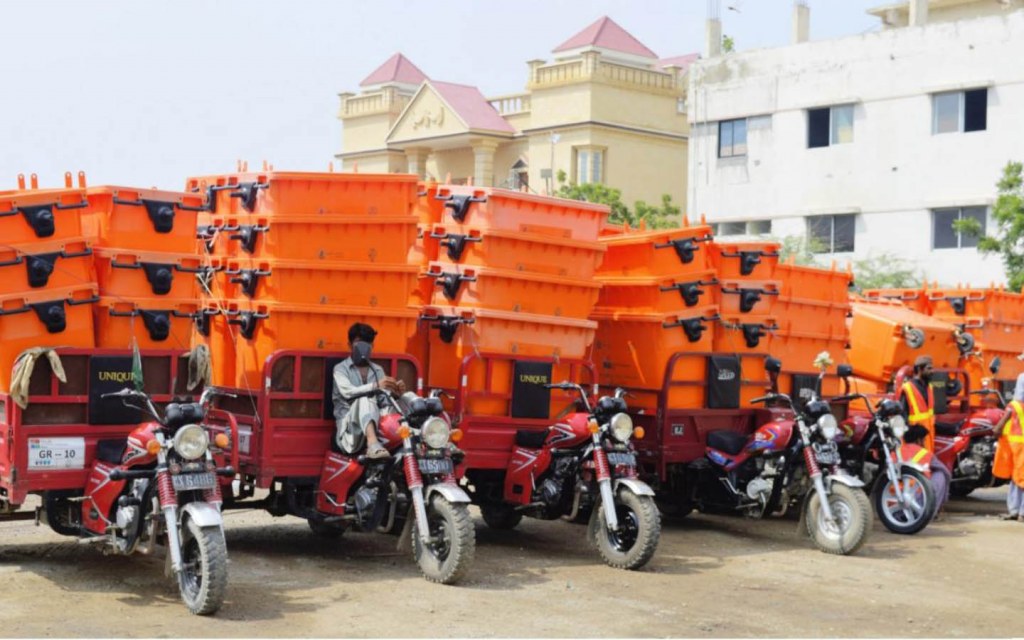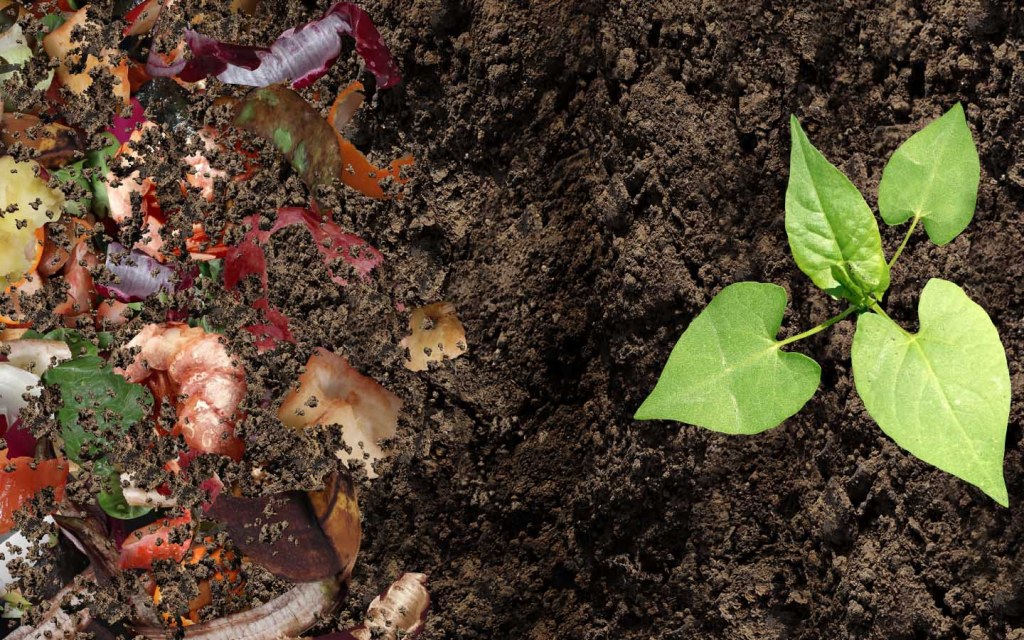Update (October 28, 2019): As the ‘Clean my Karachi’ drive comes to an end, it is estimated that garbage, weighing around 979,941 tons, was lifted from the city. The government also plans to establish six garbage transfer stations, start the production of refuse-derived fuel and improve landfill sites. These developments would require an estimated budget of PKR 2.8 billion, of which PKR 1 billion have been allocated this year. The Sindh Solid Waste Management Authority (SSWMA) also plans to modernize the province’s solid waste management system and establish a citizens’ complaints redressal system. For this purpose, a GIS mapping system of kachra kundis (dumping sites) is also under consideration. It is also expected that the task of lifting garbage from the main city and transferring it to garbage transfer stations (GTS) will be handed over to district municipal corporations (DMCs).
Putrid smell emits from a large pile of garbage lining the road as crows scavenge through the mess; suddenly a man comes over and nonchalantly drops in a bag full of trash before walking away—this is a common sight in Karachi. As per a World Bank report, around 12,000 tons of garbage is generated in the metropolis. In this blog, we will discuss the process of solid waste management in Karachi and what the government is doing to help improve the system.
Solid Waste Management in Karachi
Five years ago, in the year 2014, the task of solid waste management in Karachi was taken from Karachi Metropolitan Corporation (KMC) after Sindh Assembly passed the Sindh Solid Waste Management Board Act-2013. Subsequently, Sindh Solid Waste Management Board (SSWMB) was formed in 2015.
The SSWB has handed over the responsibility of garbage collection of four districts to two Chinese firms. One of the Chinese firms is responsible to keep the district East and South clean and garbage-free, while the other is in charge of district Malir and West, while the SSWMB manages the central district and that of Korangi.

Special SSWMB trash bins have been placed all over K-town, where people can properly dispose off the garbage, instead of throwing it on an empty plot. The ever-growing population of Karachi has made waste collection a major problem. Despite the number of bins placed in every residential area, you will find trash strewn outside the bins. The mindset needs to change in order to make Karachi clean and green
Landfill sites in Karachi
For proper solid waste management in Karachi, the government has developed landfill sites away from the city’s centre. There are two landfill sites in Karachi and a third one will be constructed with the help of World Bank’s funds. Jam Chakro and Gond Pass near Hub river. The landfill site in Karachi is spread over 500 acres of land, which is situated about 1 and a half hour drive away from the city’s centre.

It is mainly a dumping ground for all the trash collected from different areas in Karachi. The solid waste that is dumped on these sites is not segregated and so you will find vegetable scraps, fruit peels, used plastic bottles, left off construction materials, plastic bags and what not. The vegetable matter in the trash can easily be converted into nutrient dense soil by the composting method. You can also make your own compost at home with leftover kitchen scraps.
Out of the 12,000 tons of waste generated in Karachi, only 70% makes it to the landfill sites. Rest of the garbage can be seen spread at various points across the city, posing health risks to the residents of the area. Around 6000-7000 of the solid waste in Karachi is dumped in Jam Chakro landfill site, while 1000-2000 tons of garbage is thrown in Gond Pass landfill site. The remaining 3000-4000 solid waste is generated in areas that fall under other administrative bodies, like the cantonment boards, aviation authorities etc. Besides, a lot of waste is also generated by residents of squatter settlements that do not make it to the landfill sites.
World Bank to fund the third landfill site in Karachi
Under the Karachi Neighbourhood Improvement Program (KNIP), a $10 million loan will be given by the World Bank for capacity building on how to manage a landfill site, technical expertise and the construction of a landfill site. It is expected that a modern and environment-friendly landfill site will be developed in the outskirts of Karachi.
Waste-to-energy plant in Karachi

It is important to segregate waste in order to manage it. Just like the Capital Development Authority (CDA) has plans to launch a biogas plant in Sabzi Mandi in Islamabad to convert the waste collected at the site into an energy resource, similarly Managing Director, SSWMB, Dr. AD Sanjani, is also positive about setting up a 50 MW waste-energy power project in Karachi.
Commenting on solid waste management issue in Karachi, he said as mentioned in a local English daily that “Feasibility is being prepared in this regard. 600MW waste to energy projects could be established in Karachi but the Federal government allows only 50MW plants.”
Door-to-door garbage collection in Karachi
In the most recent update, Chief Minister of Sindh, Mr. Murad Ali Shah has sought proposals from the District Municipal Corporations (DMCs) to have a door-to-door garbage collection with the help of local contractors. The Sindh Solid Waste Management Authority (SSWMA) would then be given the task to collect garbage from the allocated dustbins and dump it at the designated landfill sites in Karachi.
The recent cleanliness drive in Karachi will end on October 21, 2019. It’s expected the initiative will have long-lasting effects and the process to keep Karachi clean will become more sustainable and efficient. Around 283, 319 tons of garbage was picked up from the six districts of Karachi during the month-long, roughly from September 21 to October 11, 2019, cleanliness drive in the port city.
So, this is how the government plans to make solid waste management in Karachi more efficient. Subscribe to Zameen Blog, the top-most lifestyle blog in Pakistan for regular updates on the City of Lights.
Don’t forget to write to us at blog@zameen.com if you have any suggestions on how to manage the garbage problem in Karachi.



